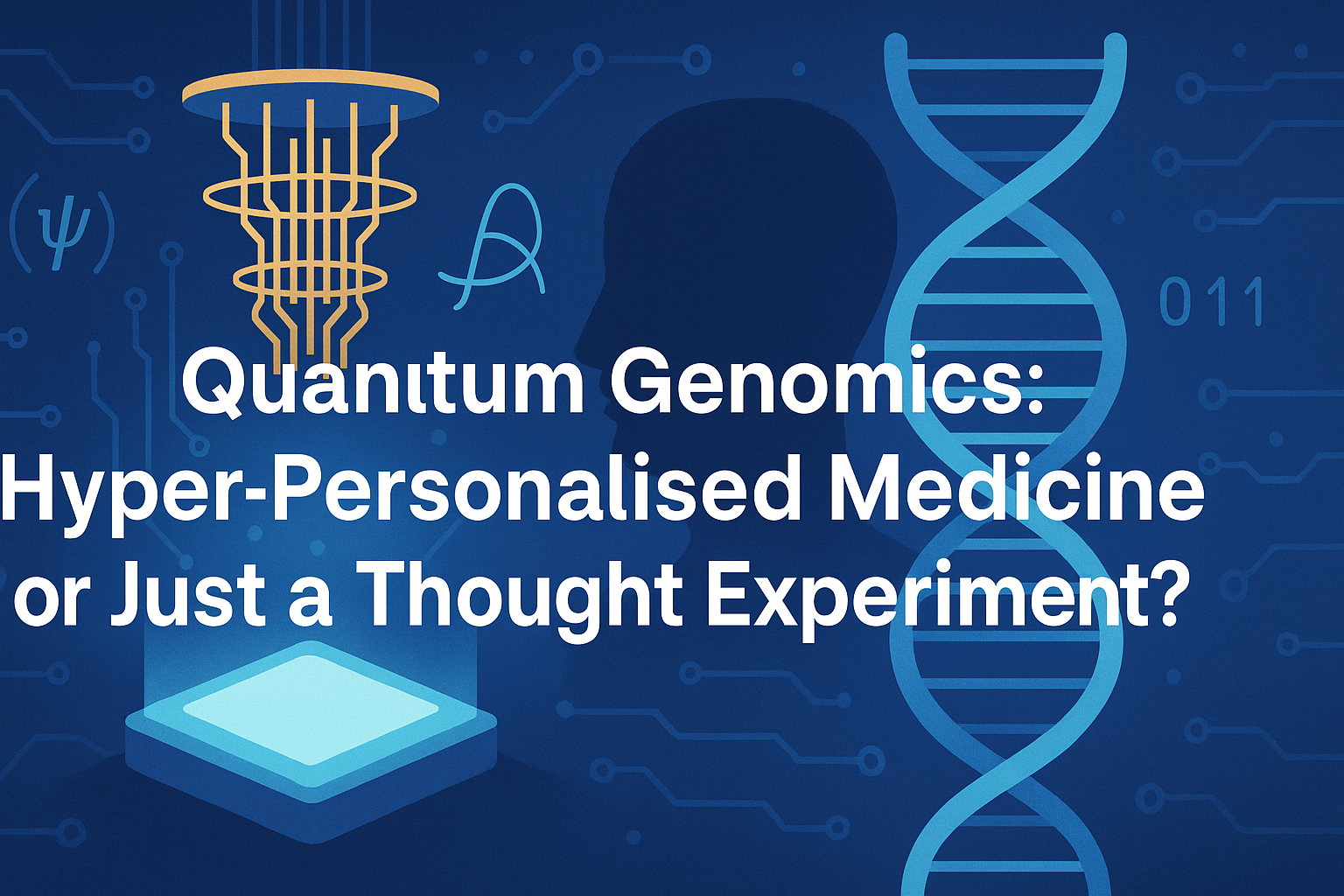The Promise
Genomics is drowning in data. A single human genome contains over 3 billion base pairs, and personalised medicine requires mapping not just one genome but entire populations. Quantum algorithms promise to search and analyse these vast datasets faster than classical methods, identifying subtle gene–disease correlations that underpin cancers or rare conditions.
The pangenome revolution — shifting from one reference genome to mapping genetic diversity across populations — is a perfect candidate. Projects like the UK’s Wellcome Leap Quantum for Bio Challenge are exploring how quantum algorithms might tackle these graph-based models of DNA diversity.
The Reality
The problem isn’t theoretical speedups — it’s practical execution. Encoding massive genomic datasets into qubits is an overhead that dwarfs today’s hardware capabilities. A 2025 systematic review of nearly 5,000 papers found no consistent evidence that quantum machine learning outperforms classical approaches in genomics under real hardware conditions.
For now, genomics is more likely to benefit from quantum-inspired algorithms — classical methods borrowing quantum principles — which can already improve efficiency in sequence analysis without the qubit noise.
The European Edge
Europe has something the US and China don’t: regulation as infrastructure. The planned European Health Data Space (EHDS) aims to harmonise access to clinical and genomic data across member states. Combined with Horizon Europe funding and the Quantum Technologies Flagship’s investment in bioinformatics tools, the EU is building the pipes through which future quantum genomics must flow.
GDPR and the upcoming AI Act also matter: any quantum-enabled diagnostic will be a high-risk AI system, forcing developers to bake in explainability, bias monitoring, and security from day one. That makes EU-born solutions more exportable in a world increasingly wary of black-box healthtech.
Strategic Takeaway
Quantum genomics is not tomorrow’s clinic-ready technology. But Europe’s bet should be clear:
- Short-term: focus on quantum-inspired tools that deliver efficiency now.
- Mid-term: fund pilots like pangenome analysis that prove “quantum utility.”
- Long-term: leverage EHDS + quantum infrastructure for hyper-personalised care.
Europe’s advantage is not just in building qubits, but in building the trusted, regulated data ecosystems where quantum genomics can eventually thrive.

